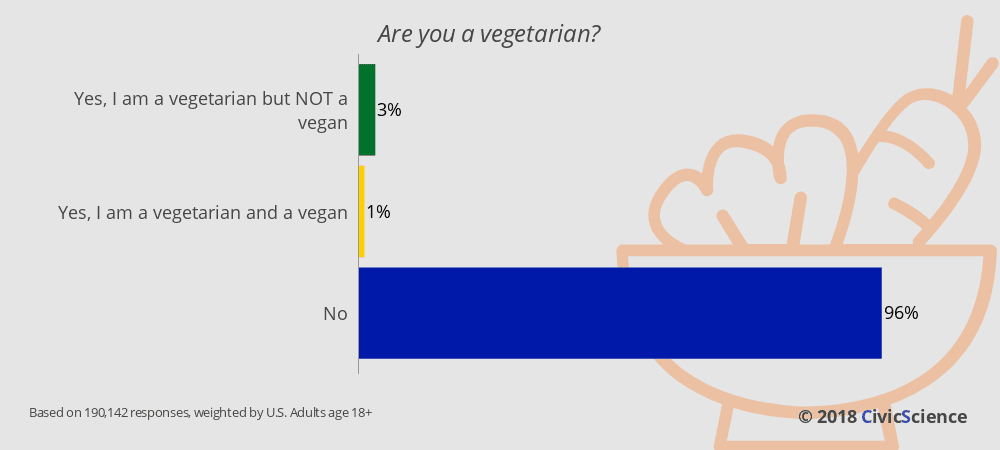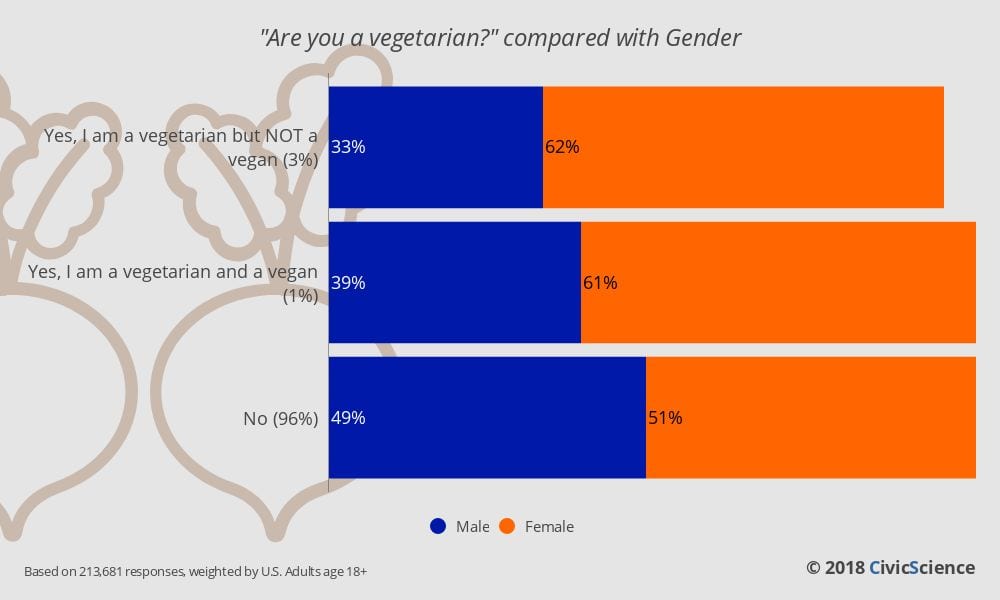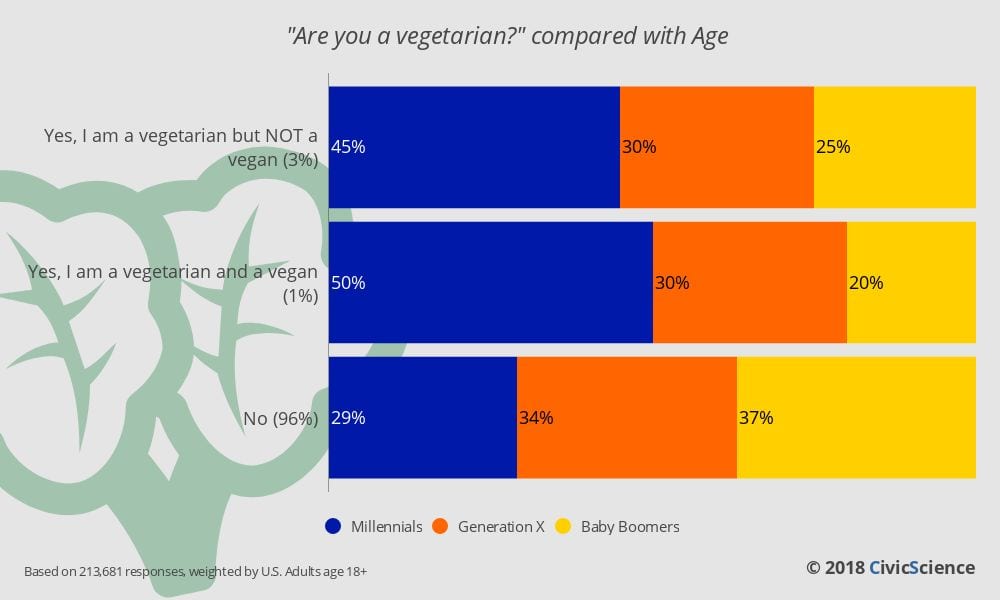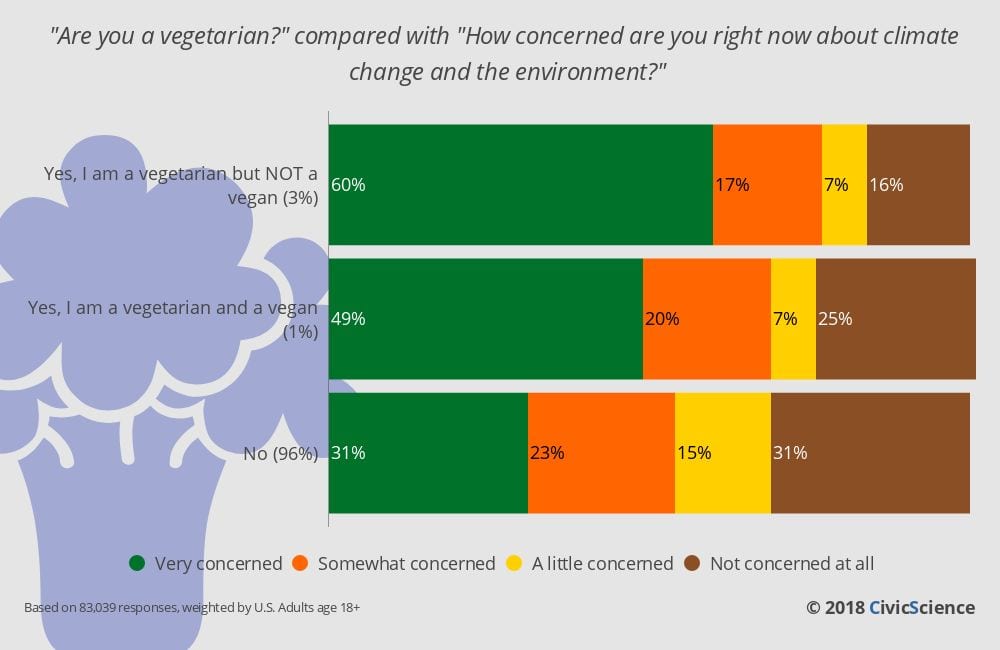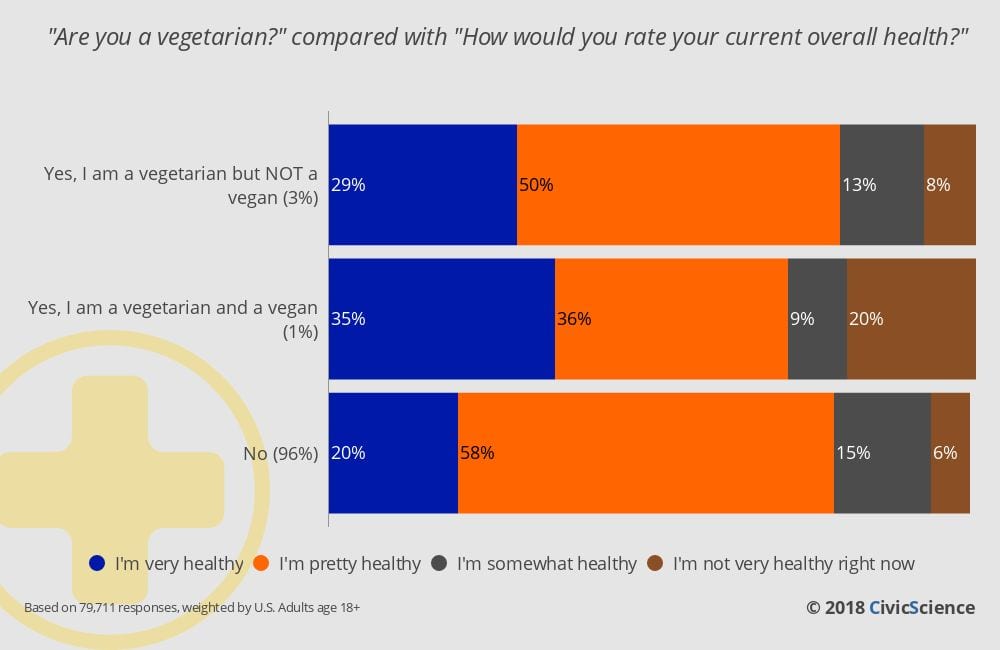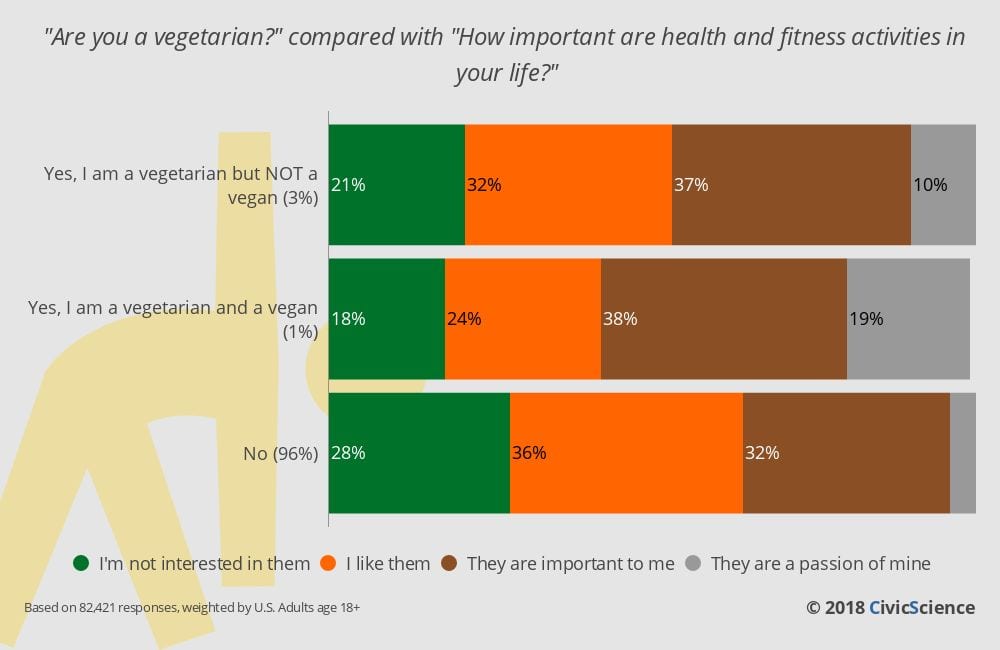Vegan and vegetarianism are both still in their early days as dietary trends. As CivicScience detailed in a previous piece, more omnivores are opting to eat vegan-ish, both at home and while dining out, but few decide to commit to full-time vegetarianism or veganism. In terms of categorization, society often lumps vegans and vegetarians into the same population, with similar behaviors. However, there are notable differences between these two populations.
An Overview of American Vegans and Vegetarians
In regards to the general population, both vegans and vegetarians are still rare. CivicScience has been asking about vegan and vegetarianism since 2015, with nearly 200,000 responses.
Overall, vegetarianism and veganism have a low incidence rate within the U.S. adult population. Just 4% of the U.S. adult population opts for a meat-free diet. Vegans make up just 1% of the U.S. population.
Women are more likely to be a vegan or vegetarian. Men are 15% more likely to be a vegan than a vegetarian.
Millennials are the most likely to identify as vegan or vegetarian. Millennials comprise half of the vegan population in the U.S. and are slightly more likely to identify as vegan over vegetarian.
Vegans and vegetarians are typically a younger population that skews strongly female. The two dining designations might look the same from afar, but up close the motivation for each behavior paints a different profile.
Environmentalism
Both veganism and vegetarianism are proven to reduce carbon footprint, relying less on meat and dairy. One would assume that vegans, choosing to eat no animal byproducts, would be more staunch environmentalists than vegetarians.
Vegetarians are 18% more likely to be “very concerned” about climate change than vegans. Notably, vegans are 36% more likely than vegetarians to not be concerned at all about climate change.
While both vegans and vegetarians express more concern for climate change than the general population overall, vegetarians are the most concerned. This raises the question, if vegans aren’t more concerned about climate change, could their motivation for their diet be different than vegetarians?
Health
Studies show the health benefits of a vegan diet. While veganism might be an even more environmentally sustainable lifestyle than vegetarianism, it’s also worth considering the health implications.
Vegans are most likely to consider themselves very healthy; the population is 17% more likely to respond very healthy than vegetarians.
Vegans are also most likely to respond, “I’m not very healthy at all right now.” Omnivores are 3x less likely to respond that they are unhealthy, as compared to vegans. This might be due to people choosing veganism because of pre-existing health conditions, but data below suggests otherwise.
Compared to people who eat meat, vegans are nearly 5x more likely to consider health and fitness a passion of theirs. Vegans are almost 2x more likely than vegetarians to consider health and fitness a passion. This suggests that the dietary restrictions many vegans impose on themselves is driven more by personal choice than dietary restrictions from pre-existing health issues. The personal choice has less to do with the environment, and more to do with health and fitness.
It also could mean that vegans judge themselves on a harsher curve than the rest of the population when it comes to health and fitness. Knowing the benefits of a plant-based diet, it’s surprising many vegans consider themselves unhealthy.
When sense of personal attractiveness is factored in, it’s clear they value perception. Vegans are much more likely to consider themselves “much more attractive” than others in their age and gender grouping. It would seem that lifestyle, health and fitness are a priority for this group–and they feel pretty good about it.
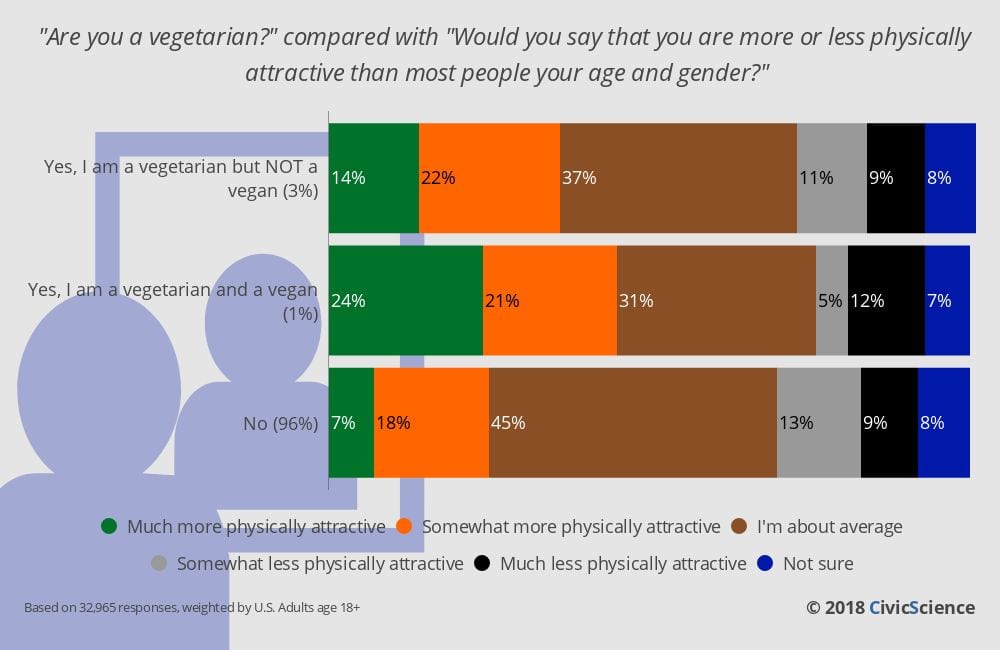
While veganism might be the most carbon-neutral eating style, lots of vegans aren’t environmentally concerned. The data seems to suggest that many adopt this lifestyle more as a health and fitness choice than to help the environment. They are more likely to be critical of their health and wellness, as well as consider fitness to be a passion of theirs. Contrasted with vegetarians, vegans are less environmentally focused, refuting the argument that the makeup of these two groups is interchangeable.
